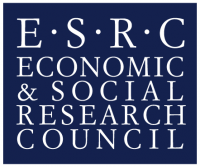News
PhD Research Programme
18th October 2015
Introduction
The LCS is committed to improving the understanding of how lean thinking and other continuous improvement (CI) approaches benefit organisations and the impact that CI training has on employee engagement and the culture change required for sustainability.
As part of its research agenda, the LCS in conjunction with Cardiff Business School plans to recruit a PhD student to investigate this field and is inviting LCS accredited organisations to join the initiative as co-sponsors. A competitive funding applicationwas made in November and was successful so the ESRC Wales DTC has awarded 4-years of funding (at 50%).
Overall Research Theme
Continuous Improvement Training and Accreditation, Innovative Work Behaviour and Kata Approach: Building the Sustainable CI Organisation
Context & Research Questions
While organisations globally spend vast amounts each year on CI education and training, not enough are satisfied with the effectiveness of training (Lu and Betts, 2011) and a lack of standards in certification is putting at stake the credibility of lean and six sigma among industry and practitioner community (Setter, 2010; Kumar et al., 2008).
Comparing the requirements of different certifications, there are wide variations in criteria used (Snee, 2010; Hutchins, 2005; Marx, 2008), in areas such as training time, assessment methods , project requirement, inclusion of financial savings and necessity for re-certification. This has made it difficult for industry to compare the competency of CI professionals and also made it difficult to compare the effectiveness of training and consultancy partners.
It is ironic that the principles and tools of CI have been applied for over 25 years to promote standards and minimise variation, yet the industry itself lacks common standards for certification and accreditation (Hathaway, 2010; Laureani and Antony, 2012).
Given the substantial investment in CI training and accreditation, is therefore considered important to assess if this has helped to build the culture of CI in the organisation and assesses how it has influenced the innovation capability of employees.
Key Research Questions
- How should organisations develop training material that is fit for purpose?
- How can training material influence the adaptive capability of employees?
- Should an accrediting body also include an element of Kata to ingrain the learning from training material into daily habit of practising it?
- What is the link between Kata approach to improvement and coaching and innovation capabilities of organisation?
PhD Programme Details
Programme Timing
The PhD programme will last four years, commencing September 2016. The PhD student will be recruited in early 2016. The student will be supervised by a Cardiff Business School senior lecturer, plus external support will be received from the LERC research community.
Programmes Costs & Contribution
The total cost of the four year programme will be £80,000, with an Economic & Social Research Council grant covering 50% of this.
The remaining £40,000 will be covered by sponsors, the amount per sponsor dependent on the number participating. The plan is to recruit between four to six sponsors, so the annual contribution per sponsor would be around £2,500 payable in August each year for four years, starting in 2016.
Sponsor Profile
Potential sponsors should be committed to CI transformation and possess a strong belief in the power of research, learning and evaluation as an enabler of culture change and be willing to allow their organisation to fully participate in the project.
Sponsorship Benefits
Sponsoring organisations can expect the following benefits from participation:
- Access to research findings prior to public dissemination.
- Input to research design and areas of focus.
- Involvement in data collection, (as a respondent, case study).
- Case studies developed from their own organisations’ experiences.
- Exclusive periodic workshops to discuss results and consider implications for strategy.
- Exposure to the latest thinking and research in the field of study.
- Peer-to-peer learning from networking and collaboration with fellow sponsors.
- A highly cost effective means to be at the frontier of knowledge development.
Expressions of Interest
Organisations that wish to discuss involvement should contact Simon Elias or Maneesh Kumar.


